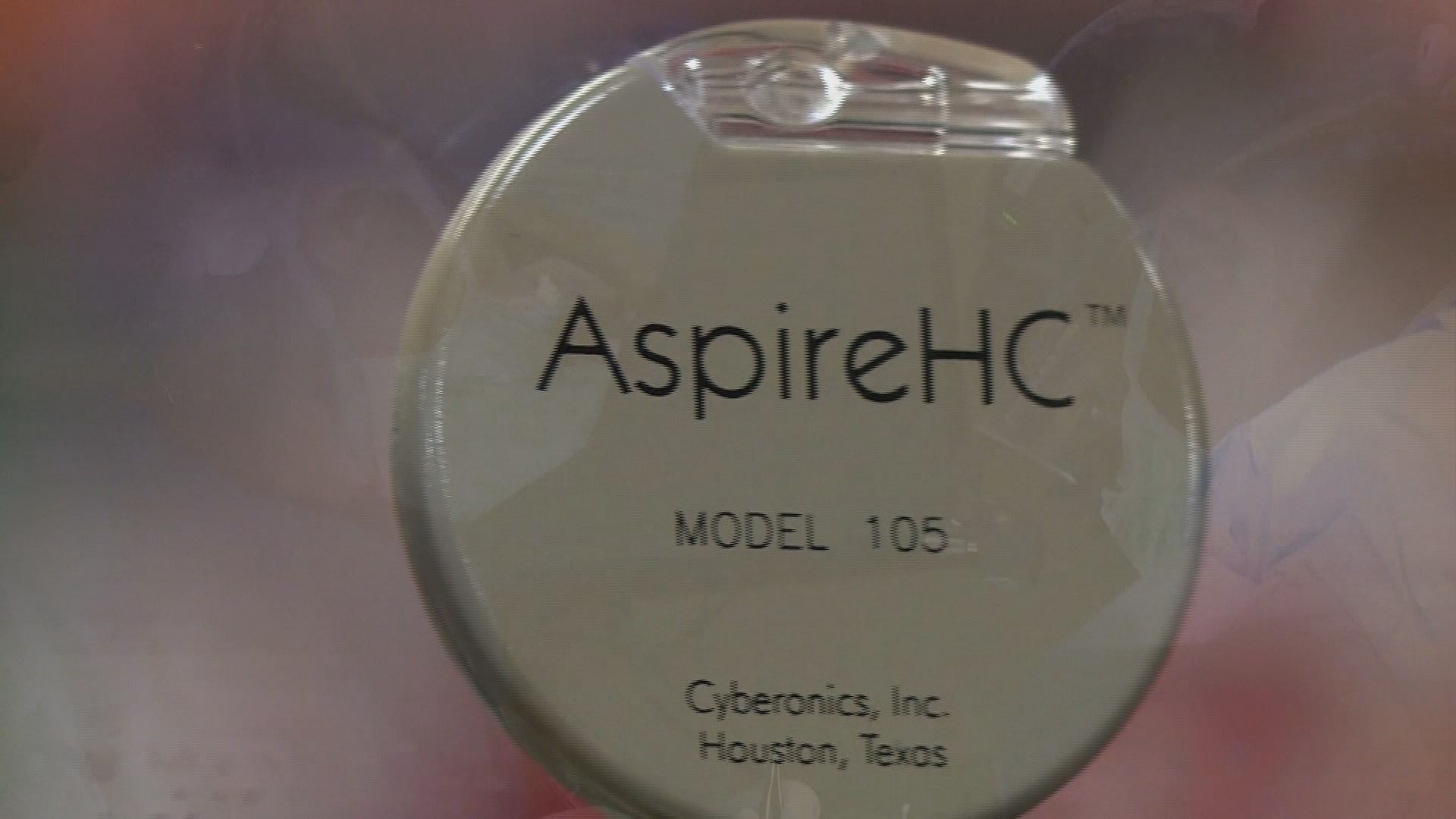Thirteen-year-old Rachael Malez recovers from a first of its kind treatment, a last option to control her terrible seizures that started when she was six months old - seizures that have taken her ability to speak.
"If anything, with the medications, it's kind of gotten worse and I hold her a lot, just comforting her," said her mom, Ruth.
Relief may be near, thanks to the AspireSR implant. It can detect a change in heart rate, which normally spikes before seizures. When that happens, an electrical impulse stimulates the vagus nerve.
"it's kind of like resetting or rebooting your computer or hard drive, kind of resets the electrical activity in the brain and hopefully stops the seizure and prevents it from happening," said pediatric neurosurgeon Dr. Maysan Kebriaei.
It's long awaited therapy for patients who don't respond to medications. It can potentially cut seizures by more than half and can also lessen the intensity and duration.
"It will automatically deliver an extra stimulation hoping to resolve the seizure, that allows patients that are unattended with the potential to have an intervention," said Dr. Jason Doescher of the Minnesota Epilepsy Group.
For Rachael's parents, the biggest breakthrough of all would be to experience those everyday joys again that epilepsy has taken away.
.


